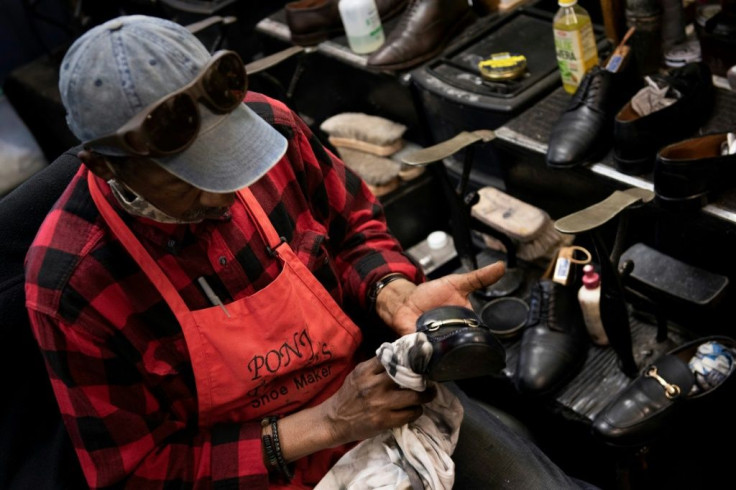NY Fed Finds 'Stark' Racial Disparities In Access To COVID-19 Aid
Black-owned businesses have been hardest hit by the coronavirus pandemic and there are stark disparities in their ability to access US government aid, the New York Federal Reserve Bank said Tuesday.
These businesses, which already suffer from racial differences in access to bank lending, have been hit by a "double-whammy" of a health crisis and financial issues making them almost twice as likely to close their doors than occurs at the national rate, according to a new study.
But in many of the coronavirus hot spots, the share of black-owned firms receiving forgivable loans under the Paycheck Protection Program (PPP) is far lower than the national average, the study shows.
That program distributed over $520 billion to small businesses between April and June, with an average loan size of $107,000, according to the Small Business Administration, but the report shows "stark PPP coverage gaps in these hardest-hit communities."
There was a "disturbing relationship between high geographic incidence of COVID-19 and the economic health of black-owned businesses," said Claire Kramer Mills, assistant vice president at the New York Fed.
About 40 percent of earnings from black-owned businesses are concentrated in just 30 US counties, largely around urban centers, but in cities with some of the worst outbreaks few of these firms received government help.
Only 7.0 percent of those firms in the Bronx, 11.3 percent in Queens, New York, and 11.6 percent in Wayne County, Michigan received PPP loans, compared to nearly 18 percent of firms nationwide, the study showed.
"Some of the hardest hit places and as measured by COVID intensity, still did not have what one might think the coverage should be given the density of the health crisis," Kramer Mills told AFP.

Some of that difference is the result of the lack of access to banks or relationships with lenders prior to the pandemic, and even healthy black-owned businesses secure loans at a lower rate than their white-owned peers.
A stunning 96 percent of black-owned businesses are "non employers," meaning the owner is the sole employee, and only one in 10 of those had borrowed from the bank for their business in the last five years compared to one in four for similar white-owned firms, research shows.
The racial disparities in bank relationships pre-COVID-19 "raise structural questions" especially in a situation where "banks are relied on to administer federal, taxpayer-supported relief programs, as is the case with PPP," Kramer Mills said in a statement.
In order to ensure the greatest impact, the authors said "the next round of COVID-19 relief should be more targeted geographically to focus on the hardest hit areas and communities that lack critical infrastructure (hospitals, banks) to ameliorate the gaps."
These businesses already tend to have less of a financial cushion than others, and rely more on online lenders, which initially were not authorized by the government to lend PPP funds, the report said.
Black business owners rightly believe they have "a greater chance of being funded through a FinTech provider than through a bank," and that is borne out by the multi-year data, Kramer Mills said.
The report does not determine the causes of the disparities in access to PPP and other financing. "We would need much more granular information" for that, she said.
© Copyright AFP 2024. All rights reserved.





















